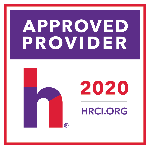Description
MOST TRENDING RECORDED TRAINING COURSE
MISSED THE LIVE SESSION? No problem, Register for Recording. You will get access to recorded sessions within 6 hours.
You get lifetime access to the recording. You can watch any time as per your convenience, any number of times.
Remote working is slated to be the future of our global workforce. You might be more familiar with its old name: “Telecommuting”. Whatever you call it, the flexibility to work outside an office is the logical next step in a world with smartphones and wi-fi.
2019 has been a big year in remote working, with about 66% of companies in the US employing remote workers. Working outside the office is no longer just for the self-employed or contract employees.
Around the world, 70% of professionals in traditional office jobs work remotely at least once a week. Technology is advancing and, with that, there’s a trend towards an increasingly mobile business model. Both employees and employers benefit from remote working.
With telecommuting arrangements, employers must monitor carefully the work hours of employees who are not exempt from federal Fair Labor Standards Act (FLSA) overtime requirements in order to avoid a violation of unpaid overtime. With employees in compressed workweek schedules, employers must adjust the defined workweek so no employee overtime is incurred; they must make sure that their timekeeping procedures incorporate any state daily overtime requirement and maximum hour limitation.
What other compliance risk does telecommuting bring for Employers:
- Employer’s resistance to telecommuting options
- Overtime Violations
- Off the Clock Work
- State Taxes
- Workplace & Remote Posters
- Employee Handbook & Stand-Alone Policies
- Evaluations & Performance
- Disciplinary Actions
- Discrimination Allegations
- Department of Labor (DOL)/Equal Employment Opportunity Commission (EEOC) Compliance Violations
- How will Foreign employees change Employers business status with remote workers?
- Are Remote Certifications required in some states?
- What privacy & data security concerns are impacted when working remotely and telecommuting?
- How can Employers mitigate workers compensation requirements
Session Highlights:
- Learn why telecommuting has been a successful flexible option for employees
- What compliance risk do Employers have when allowing telecommuting?
- Why are Employers resistant to the Telecommuting option?
- Why are Non-Exempt employees more at risk for violating FLSA regulations when working remotely?
- Where are payroll taxes determined for telecommuting/remote employees?
- How can injuries be a challenge when working remotely or telecommuting?
- How can Employers ensure telecommuting compliance efforts?
- Learn why Telecommuting policies are critical to ensure consistency and avoid discrimination
- Learn how creating an updated Employee Handbook can assist with compliance strategies
- What violation trends have impacted Employers when considering telecommuting
Why You Should Attend:
Working from home has become the new norm for many American workers. There are now approximately 3.9 million Americans who work remotely for at least half of the week. It’s a practice that has many benefits for companies, including access to a wider pool of employee talent (regardless of location), reduced employee turnover, and cost savings.
But working from home, as innocuous as it may seem, brings with it a hefty dose of compliance requirements. These can impact everything from business taxes to workers’ compensation. Employers need to be aware and prepare for the challenges that come to from telecommuting.
Who Should Attend:
- HR Professionals
- In-House Counsel
- Managers
- Business Owners
- Office Managers
*Ask your question directly from our expert during the Q&A session following the live event.
**Recorded Version: Unlimited viewing for 365 days ( Access information will be emailed 36 hours after the completion of live webinar).


 Margie
Margie The use of this seal confirms that this activity has met HR Certification Institute’s® (HRCI®) criteria for recertification credit pre-approval.
The use of this seal confirms that this activity has met HR Certification Institute’s® (HRCI®) criteria for recertification credit pre-approval.

